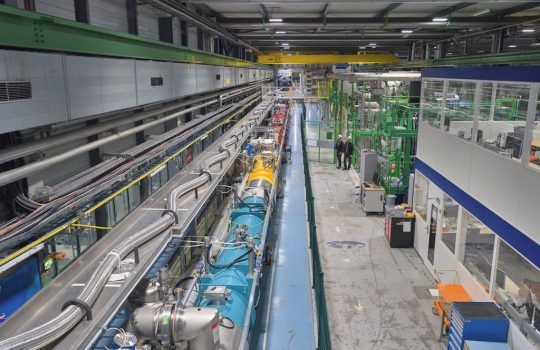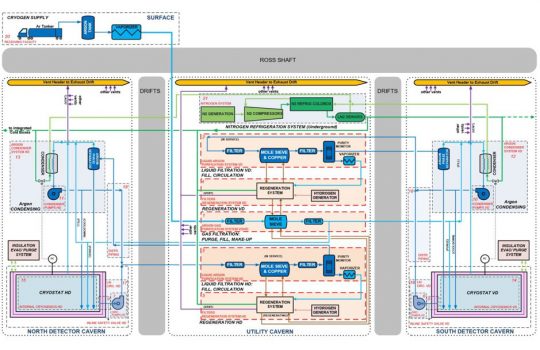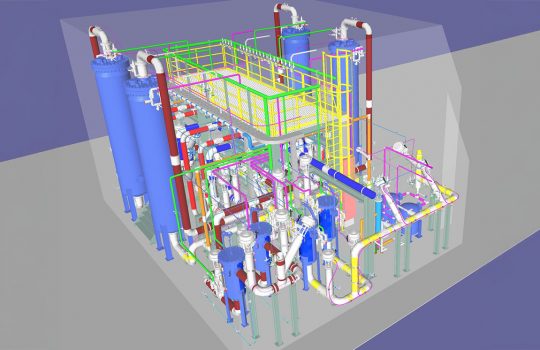The Spanish Ministry of Science, Innovation and Universities signed a memorandum of understanding with the U.S. Department of Energy’s Fermi National Accelerator Laboratory to further their participation in the development and production of advanced technologies for the international Deep Underground Neutrino Experiment. DUNE is an international megascience experiment that will use enormous particle detectors to study the behavior of neutrinos, which might indicate why we live in a matter-dominated universe.
The MOU signed by the Secretary of State for Science, Innovation and Universities, Juan Cruz Cigudosa, and the Director of Fermilab, Lia Merminga, formalizes the shared interest between both parties to work together on the construction of the DUNE detectors.
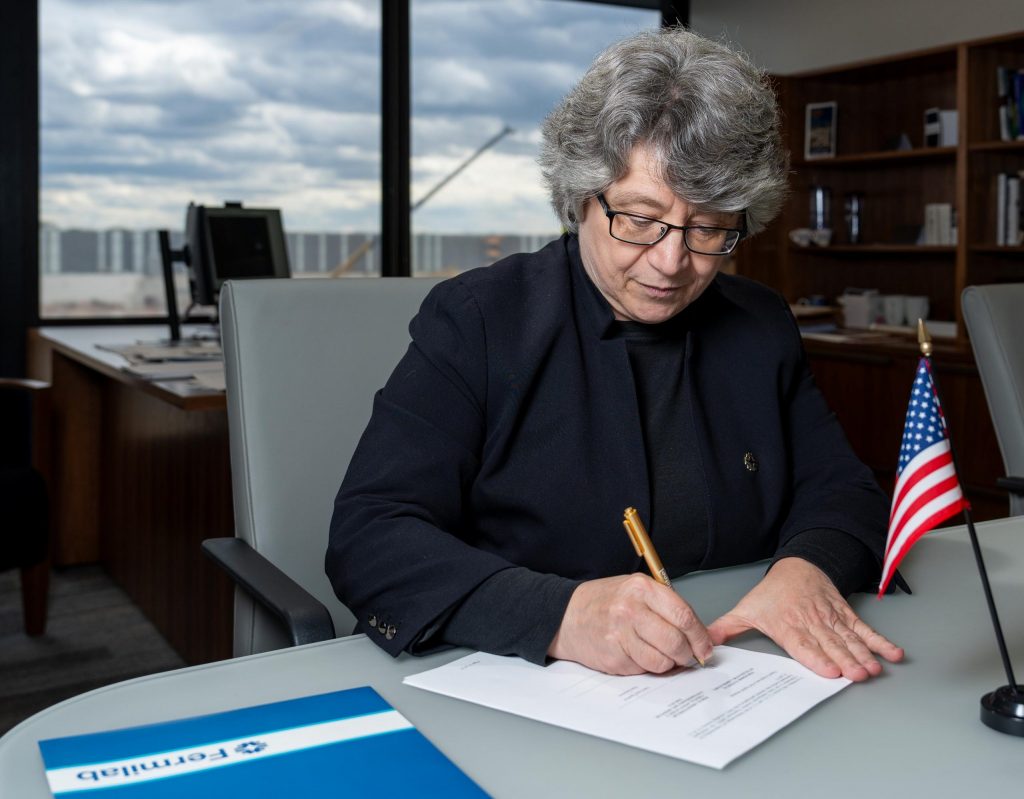
“This Memorandum of Understanding illuminates and expands on Spain’s long-time partnership with Fermilab in working together on high-energy physics research. Their neutrino physics work and contributions to DUNE are valuable to the project’s physics program and the necessary analysis tools using the latest software technologies,” said the Director of Fermilab, Lia Merminga.
As a founding member of the international collaboration, Spain has participated in DUNE since its inception in 2015 through six research groups from the Center for Energy, Environmental and Technological Research (CIEMAT), the Institute of Corpuscular Physics (CSIC-UV), the Institute of Theoretical Physics (CSIC-UAM), the Galician Institute of High Energy Physics (IGFAE-USC), the University of Granada and the University of Vigo.
As part of the MOU, Spain’s contributions to DUNE include the light-detection and temperature-monitoring system for the CERN prototypes and the massive liquid argon detectors that will be installed deep underground at the Sanford Underground Research Facility (SURF) in Lead, South Dakota.
Additional contributions from Spain include the coordination of the DUNE physics program, technical leadership of the large liquid argon detectors as well as the coordination of DUNE’s Phase II detector research and development. They also lead key groups related to light-detection and temperature-monitoring systems, the physics of low-energy neutrinos and physics beyond the standard model.
“The signing of the Memorandum of Understanding for the DUNE experiment is an important step for Spain, strengthening its role in particle physics and reaffirming bilateral relations with the United States,” said Juan Cruz Cigudosa, the Secretary of State for Science, Innovation and Universities. “This agreement recognizes the valuable contributions of Spanish researchers and institutions to DUNE and reinforces a shared commitment to international scientific collaboration, encouraging the exchange of knowledge and resources in this ambitious project.”
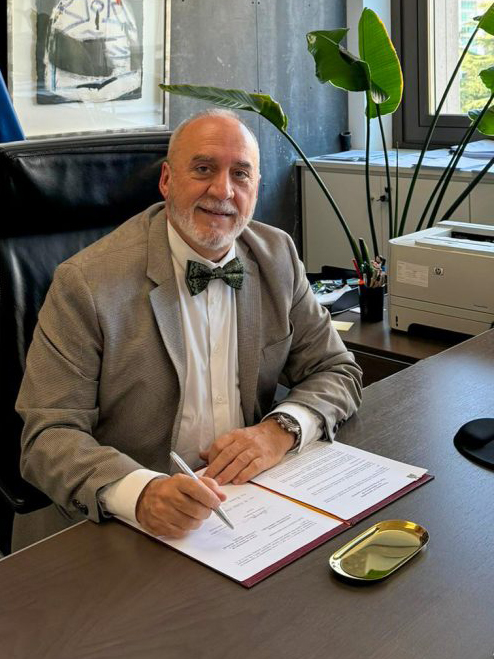
DUNE will study neutrino oscillation, a phenomenon in which a neutrino’s property, called flavor, changes as it travels. DUNE will probe this oscillation by shooting a beam of neutrinos 1,300 kilometers straight through the earth, from Fermilab’s accelerator complex in Illinois, through the Near Detector to the Far Detectors located a mile underground at SURF in South Dakota.
DUNE will be the world’s most comprehensive experiment to study neutrinos: tiny, lightweight particles that permeate the universe but rarely interact with anything. The experiment will seek to determine whether neutrinos could be the reason the universe is made of matter, look for neutrinos emitted from exploding stars to learn more about the formation of neutron stars and black holes and watch for a rare subatomic phenomenon that could explain the unification of nature’s forces.
The DUNE collaboration represents scientists from dozens of countries around the world who will contribute to the construction of detectors at two sites in the United States: one at Fermilab, the host lab for DUNE, 40 miles west of Chicago, and the other at SURF in Lead, South Dakota.
The science of DUNE is a global endeavor, and the partnership with funding agencies, scientists and engineers from around the world make it the first truly international megascience experiment to be hosted on U.S. soil. Additionally, hundreds of students from around the world will begin their careers in science, engineering and computing on DUNE.
Fermi National Accelerator Laboratory is supported by the Office of Science of the U.S. Department of Energy. The Office of Science is the single largest supporter of basic research in the physical sciences in the United States and is working to address some of the most pressing challenges of our time. For more information, please visit science.energy.gov.

